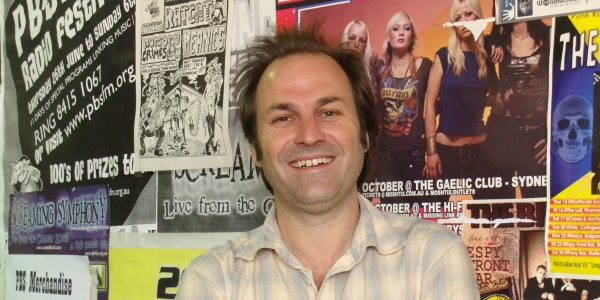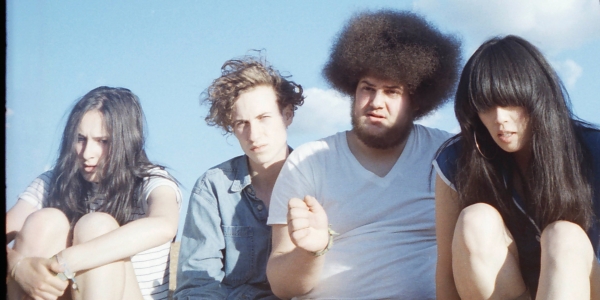This week sees the commencement of the PBS 106.7FM Radio Festival. PBS was established in December 1979, when a group of like-minded music fans decided to band together and apply for one of the early community radio licences. Dave Heard, who can still be heard on PBS FM hosting Acid Country on Thursday afternoons, was one of PBS’ original announcers. “I read an article in The Age Green Guide about these people who wanted to start a station that would have a completely different approach to the commercial stations – like playing whole sides of albums, rather than just chart hits,” Heard remembers.
In its earliest guise, PBS ran on the smell of an oily rag. “It was very primitive infrastructure,” Heard recalls. “We were out the back of the Prince Of Wales in St Kilda, in a couple of disused rooms. There was only one telephone line, and no permanent staff – it was all volunteers. I think the station was only on air from about 5am ’til midnight on weekdays, and I don’t think it was even 24 hours on the weekend,” he chuckles.
PBS endured some financially precarious moments after it moved to Fitzroy Street, but managed to ride the crisis out with the help of an appeal to the wider Melbourne music community. It’s that sense of community that continues to underpin PBS’ existence. “We really appreciate that we have a really strong music community in Melbourne,” Basso admits. “The notion of philanthropy is quite strong here – we really do rely on people’s goodwill, and people are prepared to invest in us, which is great, and we never take that for granted.”
Advances in technology have fundamentally changed the way community radio is produced, marketed and distributed – PBS is streamed on the internet, and the station makes use of the various social media tools to reach out to its community base. “Technology has definitely changed a lot over the past 30 years,” Heard reflects, “but I don’t think the station’s philosophy has changed at all.”
While the PBS community now theoretically extends to anywhere with an internet connection, Basso says the station’s focus remains on Melbourne. “I think technology has expanded the notion of community somewhat – we do have a lot of overseas listeners – but we still have a strong emphasis on local events and people. And that’ll continue for some time,” Basso says. “We have talked about how to pitch ourselves, and we pitch ourselves as Melbourne.” Basso recounts the story of a subscriber signing up to the station while residing in Afghanistan. “I had this vision of them being in a tank, though I don’t know if that was really the case,” Basso laughs.
Basso says the annual radio festival is the “critical time” for the radio station. “We spend a lot of time putting together prizes. The station really turns into this other beast at the time. We really do try and tap into the love that’s out there for us,” he explains. Heard agrees. “It’s the major fundraiser for the year,” he adds. “It’s really important for us to be on deck – no-one’s allowed to take any holidays,” Heard laughs.
While media analysts would have the world believe that audience interest in broadcasting is declining, Basso sees a different trend. “Audience interest is still increasing, especially with analogue transmission,” Basso says. “With population growth, interest in radio is increasing – congestion leads to traffic jams, which leads to more people tuning in on the radio,” he notes. And whereas audience loyalty to a particular television station is ephemeral at best, Basso says the relationship between audience and radio station is analogous to that of football club support. “I think the special thing about radio is in its intimacy, or bonding,” Basso figures. “I wonder whether it’s just a Melbourne trait, though I think it’s also the nature of the medium.”
Heard has his own positive experiences with his own program community. “When I first started I used to get people ringing up all the time with suggestions, but now it’s mainly through email,” he says. “I know if I ever play the Grateful Dead then there’s one guy who’ll always ring up. I recently got a call from a guy who said he’d found a cassette of a program in which I wished him a happy 25th wedding anniversary,” Heard chuckles.
This year’s radio festival goes by the catch-phrase ‘Turn On, Tune In, Cough Up’. “We’re playing up the psychedelic aspect, and trying to have a bit of fun with it,” Basso says. The festival offers the opportunity for PBS to connect with the listeners, labels and busiensses that make up the PBS community. “Every year I’ve been with PBS the festival has grown and grown,” Basso says. “I like to see as more than just a glorified jukebox. We’ll continue to do various non-radio things – that’s part of our community environment.”

